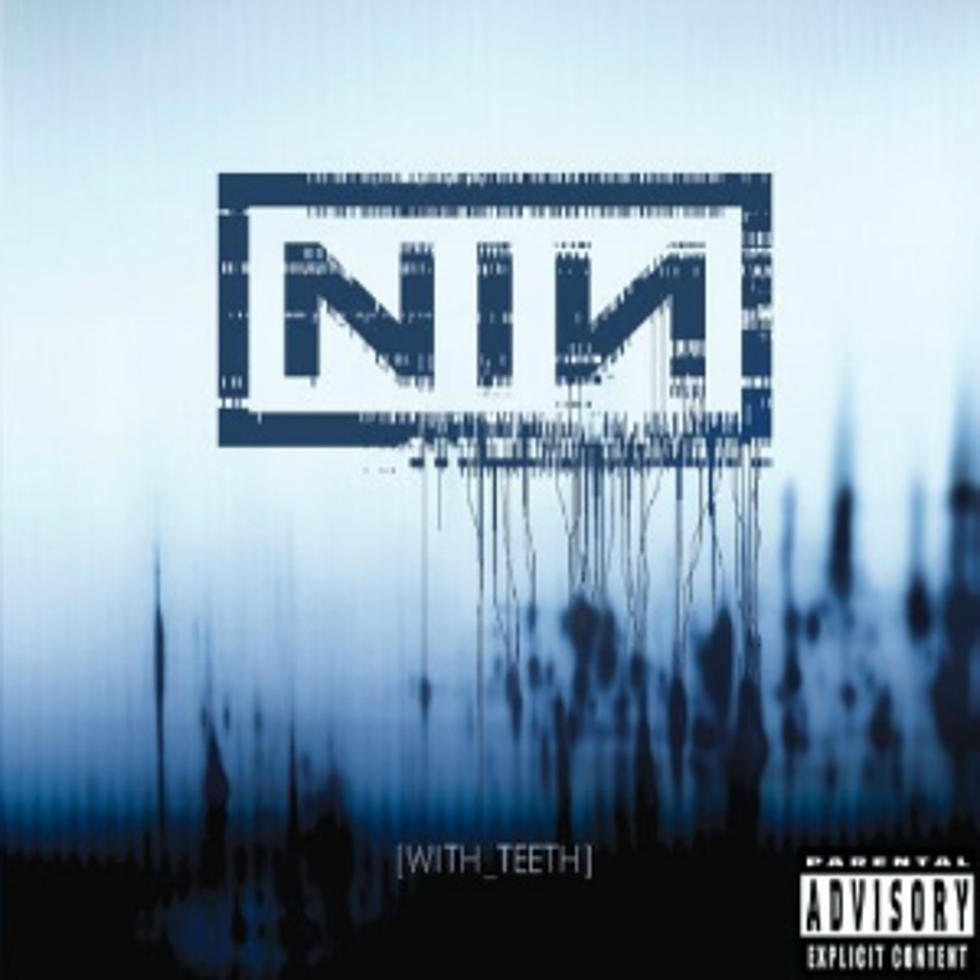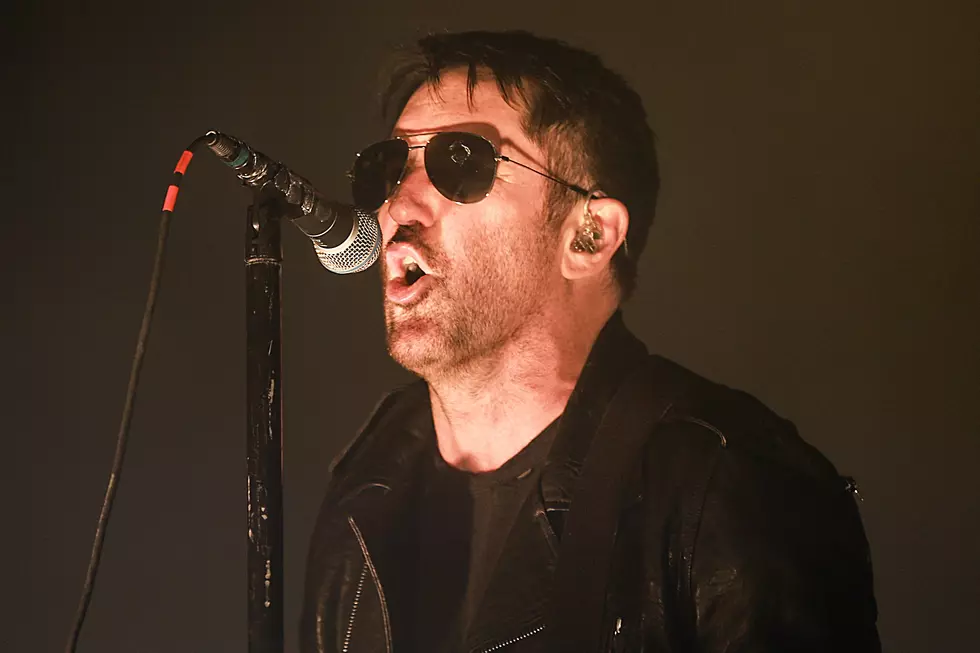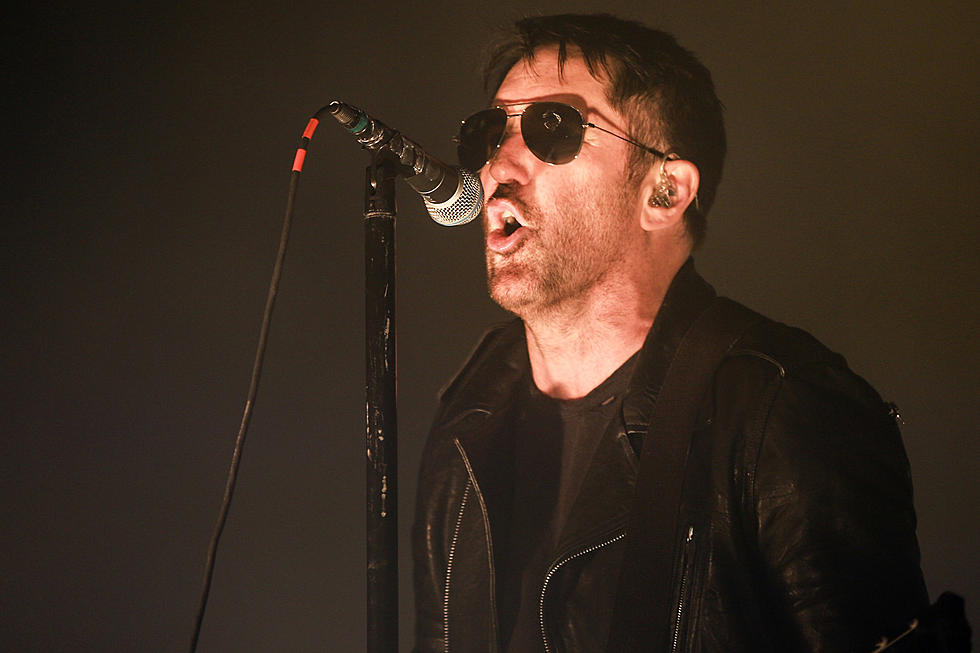
10 Years Ago: Nine Inch Nails Release ‘With Teeth’
Say what you will about Trent Reznor, but he takes his time releasing music. In his first 16 years recording as Nine Inch Nails, Reznor only released four albums and one EP, but they are five great records.
With Teeth is the last of this epic run, released in 2005. It's a landmark album both in Reznor's life and in the Nine Inch Nails discography, marking the musician's first release after successfully completing rehab.
Did the world want a clean and sober Trent Reznor? This was the gloom and doom poster boy, after all -- the antisocial vampire hiding in a former New Orleans funeral parlor; Marilyn Manson's drugged up mentor and party pal. Would a straightened out Reznor be able to summon the rage of "Head Like a Hole" or the pain of "Hurt"?
Apparently. With Teeth debuted at No. 1 on the Billboard album chart and was halfway to gold by the end of its first week. Lead single "The Hand That Feeds" cracked the Top 40 despite (or perhaps due to) being a blatant commentary on Bush-era policies.
The album started life as Bleedthrough, what the NIN.wiki describes as "an exploration of 'loss and possible discovery of self, along with alternate layers of reality and perception set inside a nightmare you can't seem to wake up from; with lots of feedback.'" Reznor later posted on the band's website that the original title wasn't conveying his intention: "It was supposed to be about different layers of reality seeping into the next, but I think some people were thinking about blood or a tampon commercial."
Dave Grohl manned the drum stool for six of the album's tracks. Reznor told Rolling Stone that he "wrote some of these tracks with a Grohl-esque performance in mind. I asked him if he was into it and that was that." One of those cuts became the album's third and final single, "Every Day Is Exactly the Same."
Rolling Stone critic Rob Sheffield gave the album three-and-a-half stars, though he had mostly favorable things to say about With Teeth, focusing most of his snark on Reznor's lyrics, which the critic suggested were "apparently compose[d] by skimming the poems his fans leave on message boards. ('Oooh, 'Sometimes I forget I'm alive'? I can use that one!')"
Sheffield probably meant that as a throwaway gag, but it points to why kids have connected with Nine Inch Nails since Pretty Hate Machine. Even while nearing 40 and grappling with the fallout of fame and wealth, Reznor could still tap into teen angst and adolescent rage -- those feelings of isolation, hopelessness and worthlessness that typified growing up for so many of us. "Sometimes I can see right through myself," he sings in "Only" -- "Less concerned about fitting into the world / Your world that is / 'Cause it doesn't really matter anymore."
Inevitably that's what With Teeth is -- an album about growing up: maybe not in the "little ditty 'bout Jack and Diane" sense, but growing up nonetheless. While promoting the record, Reznor told Spin:
Somebody telling me I had a drinking problem was not something I wanted to hear ... But miraculously, the message took, and I learned a lot about myself. I learned that I don’t know everything. That was a new concept. Because I was pretty sure that I did.
The ensuing tour lasted over a year, took the band around the world and featured indie favorites the Dresden Dolls on many dates. Several shows were captured for the DVD Beside You in Time, which remains in print.
Reznor has released four Nine Inch Nails since With Teeth, the most recent being 2013's Hesitation Marks. They are by no means bad albums, but With Teeth feels almost like the end of a cycle, like the awkward kid raging his way through Pretty Hate Machine had finally come to terms with his demons.
Worst to First: Every Nine Inch Nails Album Ranked
More From Diffuser.fm









